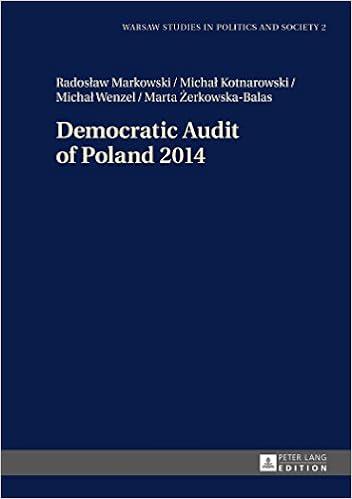Question
Benes Company makes a product that uses component A-25. Currently, Benes makes 5,000 units of the component annually with the following unit manufacturing costs: Benes
Benes Company makes a product that uses component A-25. Currently, Benes makes 5,000 units of the component annually with the following unit manufacturing costs:
Benes Company
Component A-25
Direct materials $3.30
Direct labor 1.50
Variable overhead 0.75
Fixed overhead 1.40
Total unit cost $6.95
Recently, vendor Arbor Company offered to sell Benes's Component A-25 for $6.30 per unit.
1. From the list below, check all the relevant costs Benes must consider in determining whether or not to accept the offer from Arbor Company. (Select "Yes" for the items that are applicable and "No" for the items that do not apply)
Direct materials
Total unit cost
Unit fixed overhead
Unit direct labor cost
Outside selling price
Difference between outside selling price and total unit cost
Unit variable overhead
2. If Benes accepts Arbor's offer, operating income for the year will (Round your intermediate unit costs to the nearest cent. Use the rounded computations in subsequent requirements, if required.) .
3. What is the highest price Benes could pay that would leave it indifferent between purchasing the component outside or making it in-house?
4. Suppose fixed overhead per unit increased to $1.60. What impact would that have on the decision to make the component in-house or purchase it from Arbor?
Continue to vary the purchase price to see the impact on operating income if Benes accepts the offer.
Benes Company makes a product that uses component A-25. Currently, Benes makes 5,000 units of the component annually with the following unit manufacturing costs:
Direct materials $3.30
Direct labor 1.50
Variable overhead 0.75
Fixed overhead 1.40
Total unit cost $6.95
Recently, Arbor Company offered to sell Benes component A-25 for $6.30 per unit. Benes has found that 60 percent of its fixed overhead for component A-25 is unavoidable.
1. From the list below, check all the relevant costs Benes must consider in determining whether or not to accept the offer from Arbor Company. (Select "Yes" for the items that are applicable and "No" for the items that do not apply)
$3.30
$6.95
$0.84
$1.40
$0.56
$1.50
$6.30
$0.55
$0.75
2. If Benes accepts Arbor's offer, the impact on operating income for the year will be a(n) (Round your intermediate unit costs to the nearest cent. Use the rounded computations in subsequent requirements, if required.)
3. What is the highest price Benes could pay that would leave it indifferent between purchasing the component outside or making it in-house?
4. Suppose fixed overhead per unit increased to $1.60 (assume no other changes). What impact would that have on the decision to make the component in-house or purchase it from Arbor?
5. Now using all of the original data, suppose that if Benes accepts Arbor's offer, it must hire additional purchasing and receiving help at $850 per year. If Benes accepts Arbor's offer, the impact on operating income for the year will be a(n)
Suppose Benes would like to purchase the component from Arbor but only if there is no negative impact on operating income. What purchase price could Arbor offer that would leave Benes indifferent between purchasing and making the component given the information in this question? (Round your answer to the nearest cent.) $ __________per unit
Continue to vary the purchase price and the percentage of unavoidable fixed overhead to see the impact on operating income if Benes accepts the offer.
Currently, Orrin Company makes 40,000 units of a product annually with the following unit manufacturing costs:
Direct materials $4.00
Direct labor 1.20
Variable overhead 2.40
Fixed overhead 3.50
Total unit cost $11.10
Orrin Company prices its product at $15 per unit and is selling all it can produce. Recently, Orrin received an offer from Kane Company to buy 5,000 units of the product at $12.50 per unit.
1. From the list below, check all the relevant costs and benefits Orrin must consider in determining whether or not to accept the order from Kane Company. (Select "Yes" for the items that are applicable and "No" for the items that do not apply)
$15.00
$11.10
$3.90
$1.40
$12.50
$7.60
$4.90
2. If Orrin accepts Kane's order, the impact on operating income for the year will be a(n) (Round your intermediate unit costs to the nearest cent. Use the rounded computations in subsequent requirements, if required.) .
3. What is the lowest price Orrin could accept on the special order that would leave it as well off as not accepting the order?
4. Now assume that Orrin is currently making and selling 30,000 units (capacity is still 40,000 units). If Orrin accepts Kane's order, the impact on operating income for the year will be a(n).________
What is the lowest price Orrin could accept on the special order that would leave it as well off as not accepting the order? 5. Assume that Orrin is currently making and selling 30,000 units (capacity is still 40,000 units). Kane offers $12.50 per unit, but requires that Orrin brand each unit with Kane's logo. This will raise direct materials cost to $4.15 per unit and cost Orrin $6,000 to rent special stamping machinery for the year.
If Orrin accepts Kane's order, the impact on operating income for the year will be a(n) _________ .
What is the lowest price Orrin could accept on the special order that would leave it as well off as not accepting the order? ____________
Continue to vary the purchase price, the cost of manufacturing, and the cost of machine rental to see the impact on operating income if Orrin accepts the order.
Step by Step Solution
There are 3 Steps involved in it
Step: 1

Get Instant Access to Expert-Tailored Solutions
See step-by-step solutions with expert insights and AI powered tools for academic success
Step: 2

Step: 3

Ace Your Homework with AI
Get the answers you need in no time with our AI-driven, step-by-step assistance
Get Started


